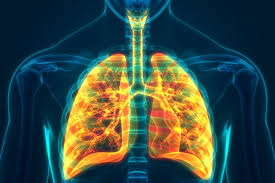Lungs And Pulmonology: UCLA Led Study Shows How Aging Can Affect Lung Regeneration
Source: Lungs And Pulmonology Jul 29, 2020 4 years, 8 months, 4 weeks, 14 hours, 43 minutes ago
Lungs and Pulmonology: A new study led by researchers from University Of California-Los Angeles Children’s Discovery and Innovation Institute and involving numerous other institutions reveals how aging can cause lung regeneration
to go awry, which can potentially lead to lung cancer and other diseases. The condition also increases susceptibility to other pathogens including various viruses such as the SARS-CoV-2 coronavirus which causes COVID-19 disease.

The study findings were published in the journal:
Cell Stem Cell. https://www.sciencedirect.com/science/article/abs/pii/S1934590920302861?via%3Dihub
The study conducted by researchers at the Eli and Edythe Broad Center of Regenerative Medicine and Stem Cell Research at the University of California - Los Angeles Health Sciences and also involved the Children’s Discovery and Innovation Institute along with other institutions focused on two types of airway cells ie mucus and ciliated cells.
Typically mucus cells are responsible for secreting mucus to trap harmful particles breathed in through the nose. Ciliated cells use finger-like projections to sweep the mucus-engulfed particles up to the back of the throat, where they can be cleared out of the lungs.
It is known that infectious or toxic particles can injure the airways when they are inhaled, which is when airway basal stem cells come into play. These cells which are capable of self-renewing and producing the mucus and ciliated cells, can activate to repair the damage in the airways. However, in order to keep the right balance of each cell type, airway basal stem cells must transition from a proliferative phase to a differentiation phase.
Dr Brigitte Gomperts, a professor and vice chair of research in pediatric hematology-oncology at the UCLA Children's Discovery and Innovation Institute and the paper's senior author told Thailand Medical News, "These stem cells have to maintain a really delicate equilibrium. They have to produce just the right amount of mucus and ciliated cells to keep harmful particles out of the lungs, but they also have to self-replicate to ensure there will be enough stem cells to respond to the next injury."
In order to dive deeper, the researchers examined mice with lung injuries to analyze the different types of cells found in the niche. They ultimately discovered that a group of molecules known as the Wnt/beta-catenin signaling pathway activate to stimulate the airway basal stem cells to respond to injury.
Cody Aros, the paper's first author, a UCLA medical student who recently completed his doctoral research said, "We were surprised to find that in the aging airways, the Wnt/beta-catenin signaling pathway is active in the stem cells even when there is no injury, in contrast to the young airways where it is only activated when necessary. When this pathway is active, it stimulates the stem cells to produce more of themselves and more airway cells even if they are not needed."
He went on to say that these findings may give researchers insight into which cell types are important, as well as what they might want to c
onsider when looking at therapies to prevent the formation of cancer.
Another study published at the beginning of July also uncovered unique lung cells that may drive Idiopathic Pulmonary Fibrosis (IPF), a potentially fatal lung disease with no cure. Researchers used a technology called single-cell RNA sequencing to examine individual cells that make up the lungs, identify their function and understand their molecular changes, which may drive the disease.
https://advances.sciencemag.org/content/6/28/eaba1972
Assistant Professor Dr Nicholas Banovich, from Translational Genomics Research Institute’s Integrated Cancer Genomics Division and co-senior author of the study, said the most interesting finding is the characterization of cells called KRT5-/KRT17+.
Dr Banovich added, "These cells are incredibly unique as they are clearly epithelial, but are also producing collagen and components of extra-cellular matrix, which make scar tissue. They are directly contributing to fibrosis."
Idiopathic Pulmonary Fibrosis or IPF is a progressive, irreversible disease that scars and stiffens the interstitium, the lace-like network that supports the lungs’ tiny air sacs. The exact cause of IPF is unknown and current treatments only slow disease progression.
For more on
Lungs and Pulmonology, keep on logging to Thailand Medical News.
